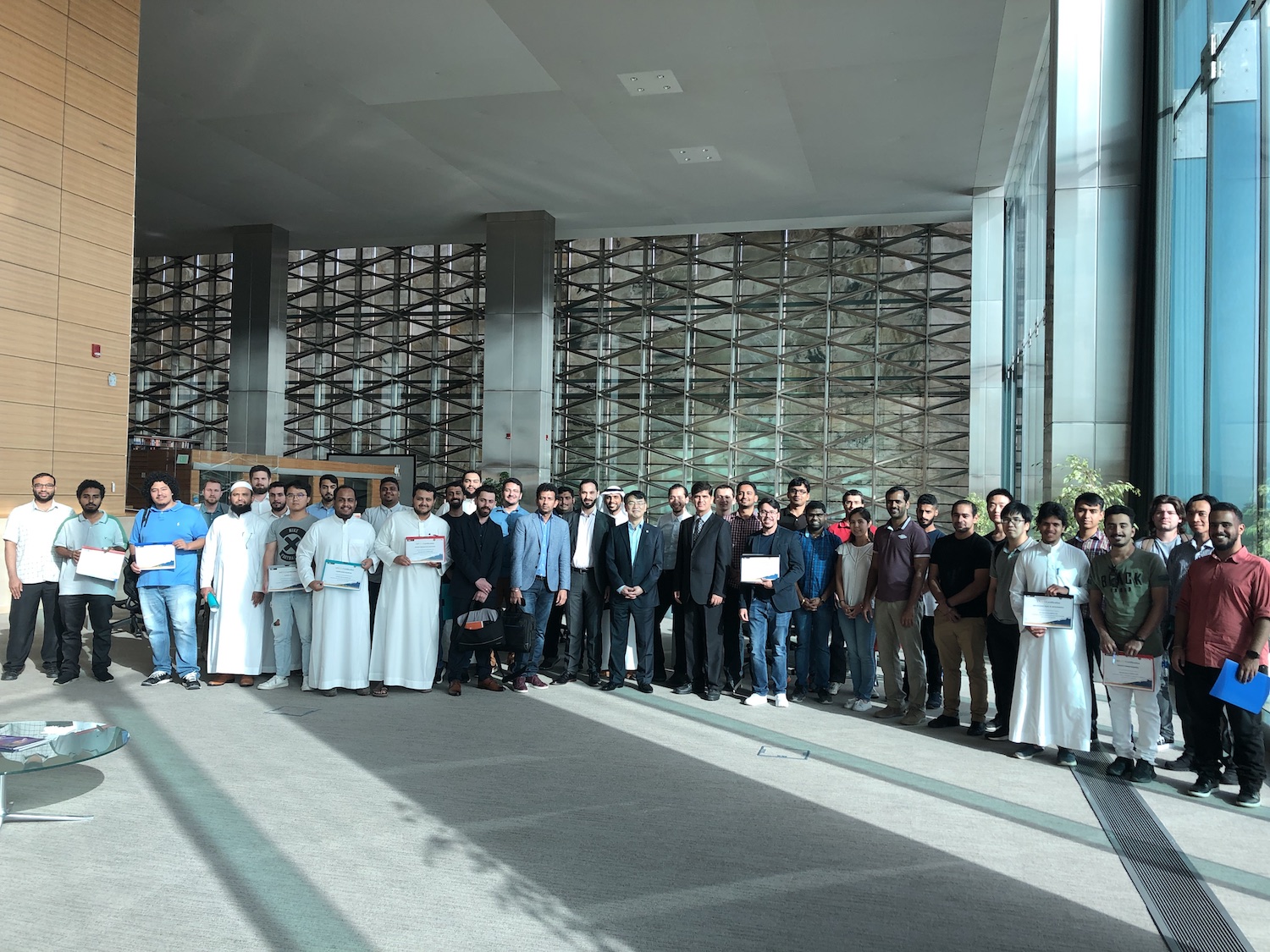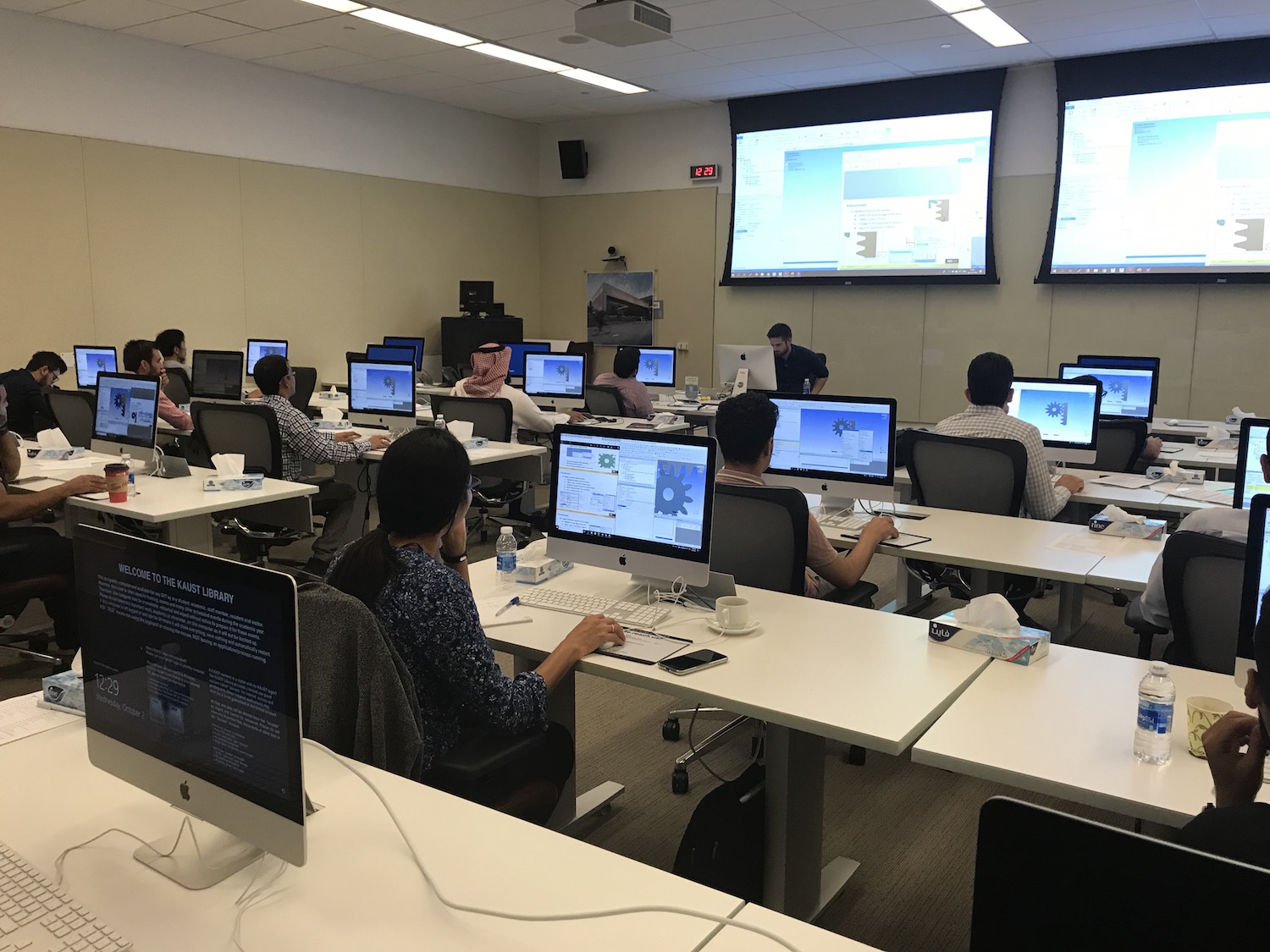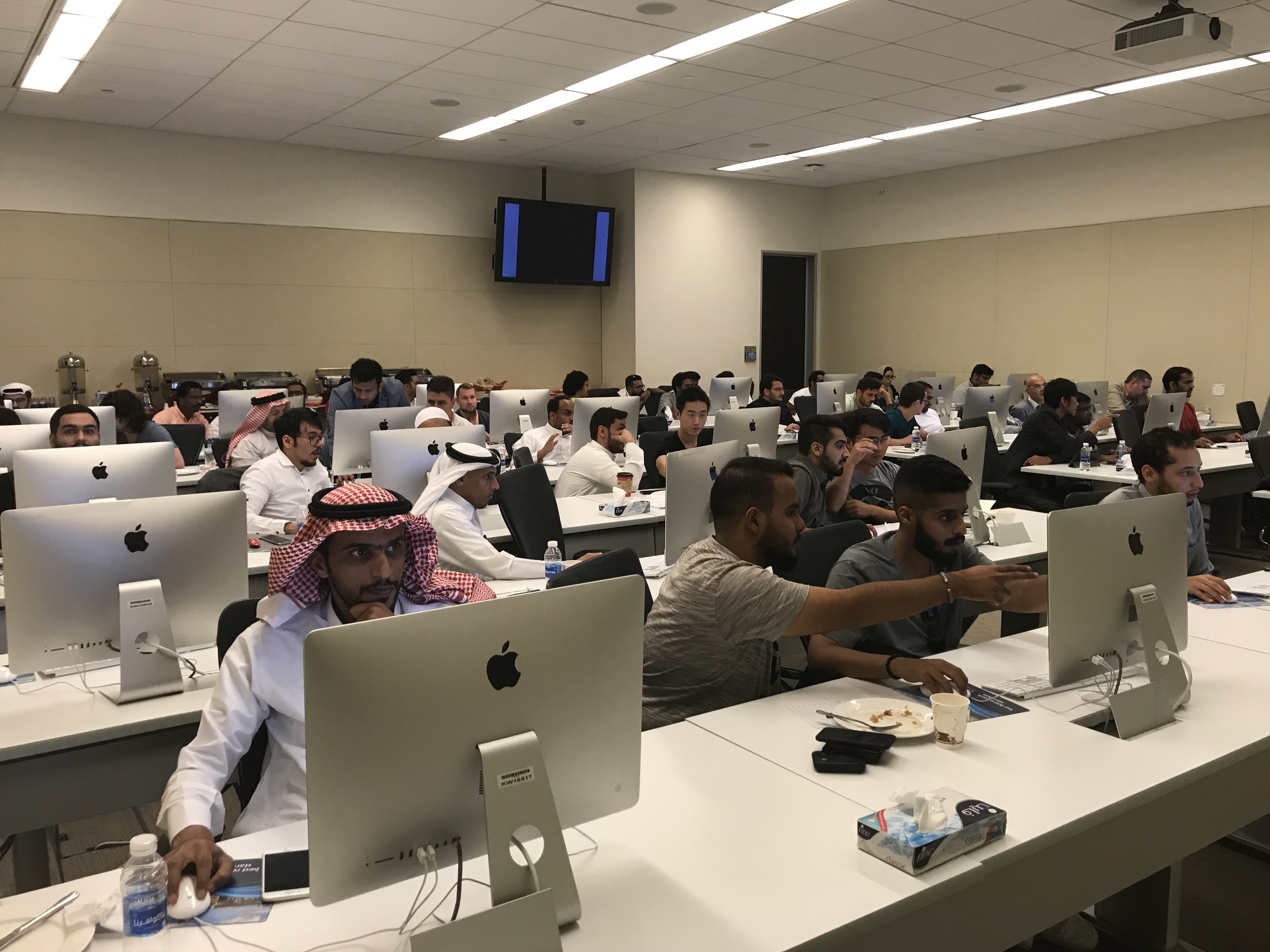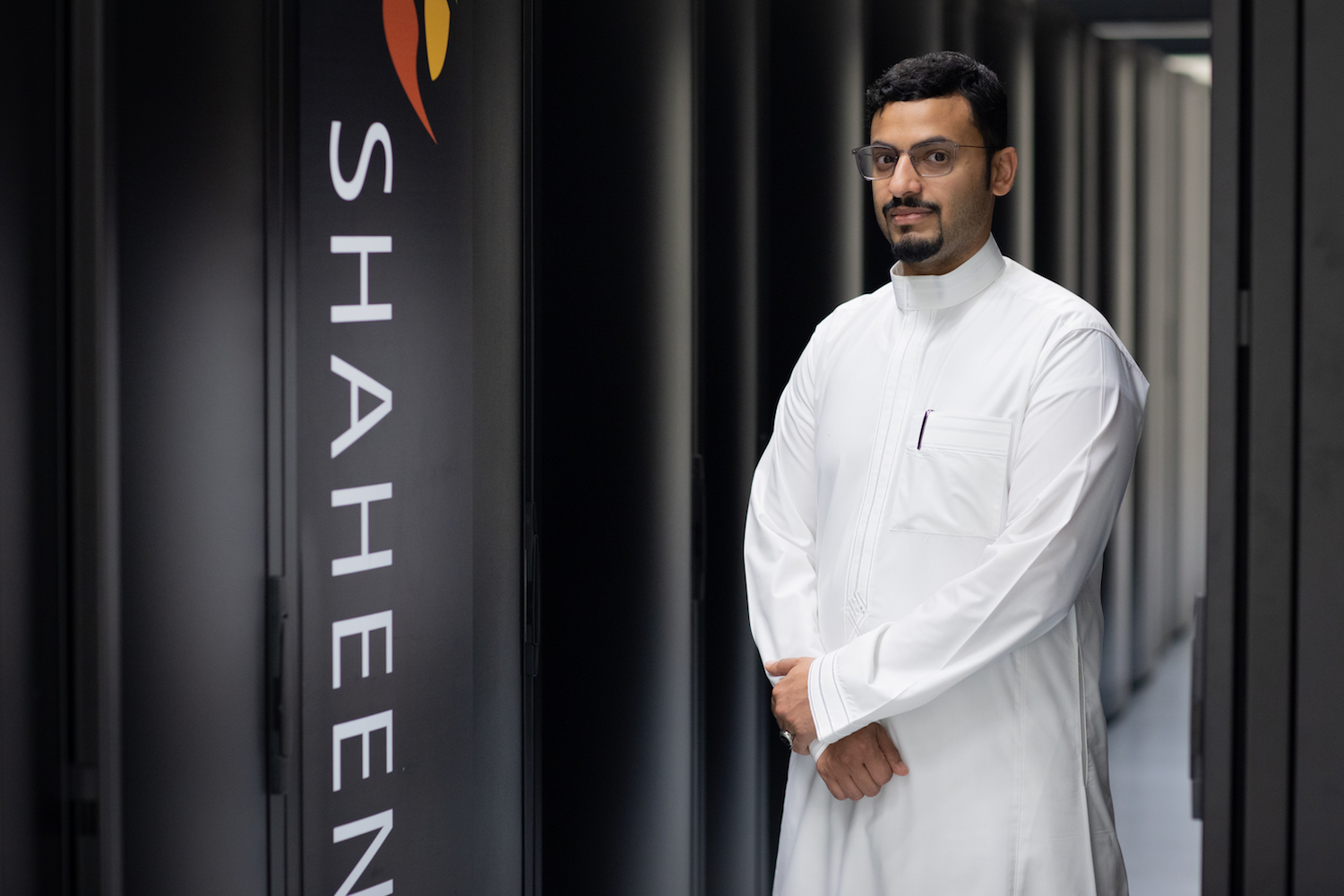Reinforcing the Kingdom's engineering simulation capability

Participants from the fourth KAUST-ANSYS workshop held in April 2019 are pictured here in the University Library. Some participants showcase certificates earned after passing the workshop's exam. File photo.
-By KAUST Core Labs
Engineering simulation is becoming increasingly important across diverse industries, including the auto industry, aerospace, healthcare, agriculture and construction. To educate the next generation of leaders in this highly technical field, the KAUST Core Labs provides engineering simulation services and training in state-of-the-art technology for the Kingdom.
Engineering simulation software creates computer models of reality, such as structures, electronics or machine components that can be used to determine a product's functionality based on different specifications—without having to build test products or conduct crash tests. When combined with a powerful computer, the software plays a critical role in enabling cars to drive; airplanes to fly; and computers and mobile devices to operate and in preventing bridges from collapsing.

Students learn about developing structural mechanics models during the fifth KAUST-ANSYS workshop held on campus in October 2019. File photo.
Providing integrated solutions
When scientists and engineers want to use simulation software to solve challenging problems in their research fields, they require three components: a high performance computer, the simulation software and training. KAUST's world-class supercomputing facility, the Supercomputing Core Lab (KSL), provides all of these for the University's community and the Kingdom.
KSL features Shaheen II, one of the world's fastest supercomputers, that enables expertise in rich simulation software for diverse areas, including biology, chemistry, materials science, seismology and weather.
Supporting the Kingdom for the future
Since 2017, KSL has conducted five training workshops related to engineering software in partnership with ANSYS, a market leader in engineering and simulation design software. The popular workshops were attended by 230 people, including 138 individuals from in-Kingdom institutions outside of KAUST. In addition, 67 students received the "Introduction to ANSYS CFD" certificate that was introduced at the fourth workshop in April 2019.

Students take part in coursework to learn about developing computational fluid dynamics models during the fourth KAUST-ANSYS workshop held at the University in April 2019. File photo.
The events function as a venue for users—such as individuals from KAUST, Saudi Aramco and SABIC—to gather new information from ANSYS, share news on existing activities and discuss possible collaborations. Some collaborations have already resulted from the workshops. The projects include applications in the areas of electromagnetics, structural mechanics, computational fluid dynamics, chemical reactor design, reservoir simulation and combustion.
"The ANSYS KAUST workshop provides a great opportunity to share knowledge and experiences between the educational field and industrial field, and I believe this kind of workshop will have a great impact to develop and enhance Saudi industry," stated Mohamed Samir Ghazal, chief mechanical design engineer, Saudi Power Transformers Company.

KAUST master's degree student Moaz Al-Lehaibi (pictured) took part in a KAUST-ANSYS workshop on campus and said he found it a 'wonderful opportunity.' Photo by Khulud Muath.
Moving into a digital economy
KAUST will continue to provide facilities, services and training for the University and the Kingdom's engineering simulation needs. In particular, the University plans to work with other organizations to move towards a national ecosystem for training future engineers in the Kingdom.
Such an initiative would not only benefit KAUST students but also those from other in-Kingdom universities, increasing their employability in today's digital economy.
"[The University's] Core Labs has great people with deep expertise, and we are eager to share [this] expertise and help the Kingdom acquire the necessary expertise in moving forward," said Dr. Justin L. Mynar, KAUST associate vice president for research and executive director of the Core Labs.
Related stories:
- Exploring bioinformatics
- Forecasting solar radiation in the Kingdom
- KAUST collaborations spearhead scientific diving in the Kingdom
- Saudi Arabia produces remotely operated vehicle pilots to navigate new seas
- ANSYS, Saudi Aramco and KAUST achieve a new supercomputing milestone

